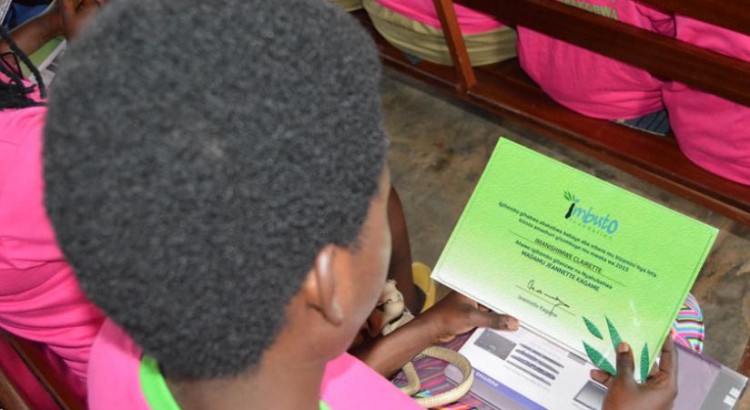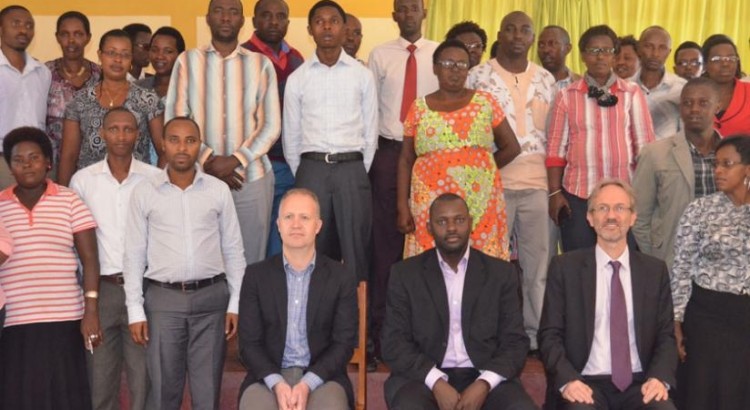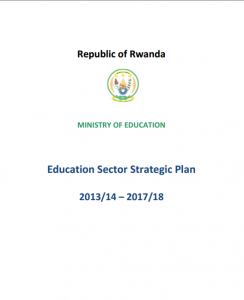África/Rwanda/Marzo 2016/Fuente: /Autor: Samantha Teta
Resumen: La fundación Imbuto concedió treinta y ocho premios a las mejores estudiantes de los exámenes nacionales, en las escuelas primarias y secundarias. En su campaña para promover la educación de las niñas, como parte de las diversas celebraciones en virtud de su 15 aniversario.
Imbuto Foundation yesterday awarded thirty-eight Best Performing Girls (BPGs) in primary and secondary schools in 2015s national examinations, in its ongoing campaign to promote girl’s education, as part of the various celebrations under its 15th anniversary.
This year’s campaign to award best performing girls was launched in Rulindo District -Shyorongi Sector, where 17 girls at Primary and Advanced levels were awarded.
Best performing girls from Gicumbi, Bugesera, Kamonyi and Kigali City, were awarded yesterday by Imbuto Foundation.
The Minister for Sports and Culture, Julienne Uwacu, was the guest of honour on behalf of the First Lady Jeannette Kagame. She congratulated the girls and challenged them to grab the academic opportunities they were presented to further upgrade their performance.
«We encourage girls to be vigilant, set goals and objectives to achieve and formulate a way forward, devising ways to make their dreams a reality. It is also paramount that they find positive role models to look up to who have already registered significant achievements in their field of interest,» she said.
She went on to highlight some of the issues limiting girls’ education as heeding distractions, approaching education without zeal and most importantly, early and unplanned pregnancies.
«Early pregnancies are a big hindrance in a girl’s education. The consequences are often too heavy for young girls and this is an issue that concerns all of us as a community. We need to work together to discourage these early and unplanned pregnancies,because of their negative impact on not only the communities, but on the country as a whole,» she said.
«Despite the fact that we are happy with the progress registered in promoting girl’s education, there are still sectors which don’t register girls excelling, which clearly illustrates a need for more efforts to empower these young girls,» Uwacu added.
The minister emphasized that parents’ efforts,and the education received at home,form the foundation that should provide the proper moral compass to help girls achieve academic, and overall success. She went on to encourage girls to aspire to achieve more for themselves, and the country, by utilizing the resources at their disposal.
The Governor of the Northern Province, Aime Bosenibamwe, also highlighted that early pregnancies can negatively interfere with girls aiming for academic growth and achievement.
«There are many distractions which girls must train themselves to outsmart and overcome, being well aware that an unplanned pregnancy may push their academic life, and stability, back by several steps,» he said.
He further requested young girls to not take organisations like Imbuto Foundation for granted, when it comes to the efforts that support their education. He also advised them to dream big, work with dignity and fight for self-reliance.
The girls were awarded certificates of merit, school bags that contained a dictionary, textbooks, calculators, mathematical sets and Rwf20,000 for their transport.
Best performing girls at advanced level were awarded laptops and are set to receive computer training before joining university.
Fuente de la noticia: http://www.newtimes.co.rw/section/article/2016-03-29/198464/
Fuente de la imagen: http://www.newtimes.co.rw/files/photos/1459201292DSC_0139.jpg











 Users Today : 3
Users Today : 3 Total Users : 35460306
Total Users : 35460306 Views Today : 3
Views Today : 3 Total views : 3419031
Total views : 3419031